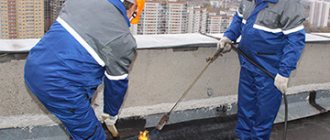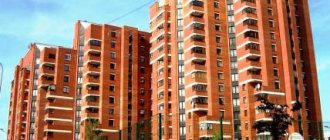Contributions to the capital repair fund have recently been added to the usual utility bills paid by apartment owners. Some confusion in concepts leads to the fact that some residents consider these expenses to be unnecessary and avoid transferring monthly payments to the Federal Fund of the Russian Federation. This material is detailed instructions on how not to pay for major repairs and not run into fines.
What work is included in the list of regional overhaul programs:
- repair of common premises and equipment - basements, attics, roofs, elevators;
- renovation of facades;
- foundation restoration;
- reconstruction of utility systems - sewerage, water supply, heating and lighting.
The minimum payment amount is calculated based on the norm for 1 sq.m. housing and is determined by local legislation. According to the homeowners, it can be increased (if they wish to speed up the collection of the necessary funds). Residents who ignore their obligation to pay contributions to the FKR risk eventually receiving a court notice to pay the debt and penalties accrued on it.
The Housing Code identifies several categories of housing, the owners of which are exempt from this additional burden:
- houses that are municipally owned - the responsibility for carrying out major repairs in this situation falls on the municipal owner;
- dilapidated houses - even if the residents paid contributions to the FKR, from the moment the act on the unsuitability of the building for habitation is drawn up, they are released from this obligation, and the funds they contributed must be returned;
- houses, the land under which is subject to seizure for municipal needs.
Do residents of new buildings ? Legislation allows new residents not to contribute to the FCR for a certain period of time. The exact period is determined by local authorities - as a rule, it does not exceed five years. However, the opposite is not prohibited: members of the HOA can voluntarily accumulate funds for future repairs in their special account with the regional operator.
For those who want to know how to legally avoid paying for major repairs, the instructions in the next section will help determine whether you are entitled to a benefit.
Payment for major repairs in new buildings
Should residents of newly built houses make contributions for major repairs?
Such buildings really have a special status. The Housing Code of the Russian Federation provides a definition of new buildings, which is fundamental. The latest changes made include buildings in this category whose commissioning is dated no later than July 2021.
Note! As a general rule, residents of new buildings have the right not to pay for major repairs for 3-5 years. This deadline is more definitely set at the regional level.
As a rule, the developer establishes a five-year warranty period for commissioned buildings. If anything breaks down during this time, it is he who is obliged to make repairs at his own expense.
In new buildings, just like in any other apartment buildings, general meetings of the residents of the building are held. At these meetings, a number of issues related to the maintenance of the building are resolved: when and in what amount it is necessary to pay a fee for major repairs, what kind of work needs to be performed.
Buildings that have been put into operation recently will one way or another one day require repairs. Therefore, it is possible to raise funds for these purposes in advance.
Watch the video. Is it legal to charge a fee for major repairs:
Who has the right not to pay to the FKR
Some categories of citizens have benefits and subsidies for utility bills. Contributions to the Fund for capital repairs were no exception. Regional authorities have the right to independently determine the list of those persons who are exempt from them in whole or in part:
- Non-working pensioners. The main condition is living in your own home alone, or with a fellow pensioner . At the same time, for those who have reached the age of 70, a benefit of 50% is provided, and for those who have crossed the 80-year mark - 100%.
- Disabled people of groups 1 and 2, parents of disabled children. These categories of citizens have the right to reduce their contribution to the FKR by half. All conditions must be clarified with local authorities. This benefit applies to families or citizens whose income is limited to the subsistence level or minimum wage.
- WWII participants, labor veterans, blockade survivors. The application of the benefit may also depend on income.
- Large, low-income families, single mothers. The conditions for receiving benefits and the existing restrictions must be clarified with the social protection authorities.
Important! In order to exercise your rights and not pay contributions to the FKR, you must submit an application to the regional operator and the local administration, since this benefit is of a declarative nature. In addition, in some regions, even all citizens are required to fully pay receipts from the Federal Fund of the Russian Federation, and the amount transferred by beneficiaries comes to their personal bank account in the form of a special subsidy.
Is it possible not to pay for major repairs without the above reasons? No, categories of citizens not included in the list of beneficiaries cannot legally refuse contributions for major repairs. Trying to save money will ultimately lead to additional costs for penalties and fines.
How can I be partially exempt from contributions for major repairs?
Two options can be distinguished:
A) if major repairs have already been carried out in the house and they were not paid for from the budget or the relocation operator, then homeowners have the right to offset their payments for such repairs against future contributions for major repairs;
B) if the owner is not among the beneficiaries, but belongs to the poor, he has the right to receive a subsidy for housing and communal services - and incl. to pay for major repairs.
Unlock access to the private part of Clerk with a Premium subscription. Get hundreds of webinars and online courses, unlimited consultations and other proprietary content for accountants.
Hurry up to subscribe with a 20% discount until October 15, 2021. Read more about “Premium” here.
Other ways to save legally
However, it is quite possible to reduce the current costs of payments to the Federal Credit Fund. If the residents of the house are part of a HOA or join an initiative group, they can:
- conclude an agreement to place advertising banners on the facades of the house, rent out part of the common areas of the house to third-party organizations - the funds received can be used to pay contributions to the FKR, provided that they are accumulated in a special account;
- organize the necessary repairs on your own - with the involvement of a contractor. In this case, an amount equivalent to that spent will not have to be contributed to the FCR, provided that the work performed is included in the long-term plan. In this case, it is necessary to coordinate the repair with the regional operator;
- if there is half the minimum amount in the account according to the local standard approved by the authorities, payments for major repairs can be suspended.
Individuals renting out apartments under a rental agreement can reduce their costs for contributions to the FKR by agreeing on their payment with the tenant. However, you need to understand that such a clause cannot officially appear in the terms of the transaction, since the owner of the property is obliged to pay the fees.
Who is a regional operator?
A regional operator is an organization engaged in the creation of a specialized fund where money is legally used to carry out major repairs of a residential building. It is she who opens an account in one of the banks of the Russian Federation, where funds are deposited, the total amount of which is at least 20 billion rubles. But the regional operator not only deals with the issue of opening an account for major repairs, but also performs many other functions:
- act as a mediator in interaction with municipal authorities in the process of finding answers to organizational issues;
- monitor how contributions from citizens accumulate, and also ensure their legal discrepancy;
- carry out manipulations in the selection of contractors who will monitor construction work, monitor how lawfully the estimate is worked out, etc.;
- organize work properly within the time frame when it is really necessary, and also regulate it in accordance with the program established in the region;
- check how well the repair work is being carried out, and also make adjustments if the need arises.
At each stage of your work, post reports on the official website of the organization. This way, all interested parties can receive information that interests them. And to do its job even better, the regional operator must collaborate with residents and TSN, and also participate in meetings. In addition, it is the operator’s responsibility to notify residents about major repairs, their timing and other relevant information.
Frequently asked questions from owners
- Will major repairs be carried out if the previously transferred funds to the FKR account are not enough? Yes, the work included in the plan will be completed even if there is insufficient funding from the owners. For their implementation, funds accumulated by the Federal Credit Fund in a consolidated account and bank credit lines are attracted. This will not change the amount of residents' contributions; repairs will be carried out on credit.
- Will the amounts spent by residents on general building repairs be counted if they were not included in the regional program? Partial or full offset of such expenses is possible only if they are included in the plan of the regional operator, or if there is a proven need for them to be carried out with adjustments to the program.
- Do I need to pay for major repairs, and what consequences may arise if contributions are not transferred to the Fund? If a debt arises for a period of more than 6 months, the regional operator has the right to recover funds from the debtor through the court. The consequences will depend on the size of the delay, the primacy of the violation and other factors.
- Since payments for major repairs are equated by law to payments for utility services, the conditions for claiming them are similar. The court can not only issue a ruling on debt compensation and penalties, but also seize the debtor’s property or temporarily restrict his travel outside the Russian Federation.
- The HOA did not enter into a separate agreement with the regional operator. Does this mean that there is no need to pay contributions to the FKR? No, that doesn't mean it. All homeowners of apartment buildings are required to pay contributions for major repairs.
Text: Svetlana Kuryleva
What happens if you don't pay
If there are no benefits for capital repairs, payments should be made on time. What if for some reason you can't or don't want to do this?
You need to contact the management company. You should not simply leave receipts unpaid without explaining anything, as this will lead to the accumulation of the amount owed.
Citizens who do not make the required payments begin to regularly receive written notices from the management company or local authorities about the need to repay the debt. Information is also conveyed to debtors through telephone calls.
Written notifications of the existence of a debt with a requirement to repay it within a certain period will be the basis for the authorized bodies to apply to the court in order to collect the debt. It is the judicial consideration of the debt collection case that is the next stage in case of non-payment of dues.
In addition to the principal amount of the debt, the apartment owner will also have to pay a fine in the amount of 0.5-5% of the debt amount. The exact amount of the fine is established by the agreement with the management company and may depend on the region of residence.
Important! The judicial review must be comprehensive, and the owner of the apartment has the right to present evidence that the fees were not paid reasonably. If the court considers the defendant's arguments worthy of attention and consistent with the law, it may release him from repaying the debt. As a rule, this does not happen.
Citizens with large debts cannot provide legal grounds for such actions, and a court decision is made in favor of the plaintiff.
By obliging the property owner to repay the debt, the court also collects from him all penalties and fines, as well as the cost of legal expenses.
The court decision sets a deadline for paying the required amount. For insolvent citizens, the court has the right to determine the procedure for installment payments.
After the judicial act enters into force, the debt must be collected in the following ways:
- voluntary payment by the debtor in full or in parts. It all depends on the financial capabilities of the citizen. If it is not possible to repay the debt on contributions for major repairs at once, the installment plan can be up to six months. In this case, the amount is divided into appropriate parts and paid in equal shares. If the court decision does not contain a condition for installment payments, you must submit an application to the management company (utility services). Usually the parties find the most acceptable option and enter into an appropriate agreement,
- forced collection. If the court decision is not executed voluntarily, bailiffs are responsible for collection. A deadline is set for payment of the debt. In case of non-compliance, penalties are added to the amount owed.
Attention! Calculator for calculating penalties for payments for major repairs (Part 14.1 of Article 155 of the Housing Code of the Russian Federation)
Powers of bailiffs:
- sending enforcement documents to the organization where the debtor works,
- seizure of a pensioner’s income, including a pension,
- debiting funds from accounts in credit institutions,
- recovery from the amounts of a disability pension if the person is legally capable.
The law prohibits collecting from citizens amounts amounting to more than 50% of monthly income.
Other rights of bailiffs:
- seize the debtor's property, his accounts and existing securities,
- to confiscate seized property and sell it through auctions,
- prohibit a citizen from leaving the country,
- introduce restrictions regarding the property registration procedure.
For debt repayment measures to begin to be applied, the case does not necessarily have to begin in court.
Please note! Before this, the following penalties may be applied to the debtor:
- inventory of property and forced debiting of funds from the bank account (bank card) of the debtor. The law introduced a procedure for inventorying property in a simplified manner, without summoning the debtor to court. The essence of collection actions is to issue a court order based on documents submitted to the court by the housing organization. The order is issued within 5 days. After a court decision is made, it can be appealed within 10 days. If there is no appeal, the case is transferred for execution by bailiffs. In addition to funds in accounts, collection can be applied to a car or household appliances. It is also possible to recover from the value of the property if it is not the only habitable housing,
- restriction of travel abroad (ban). If there is a debt in the amount of more than 10 thousand rubles, this, often unexpected, measure is applied. The ban on leaving the country can only become known at the border. In this case, the citizen will not be able to repay the debt immediately at the airport. Therefore, before traveling abroad, you should find out whether there are debts not only in paying for major repairs, but also in relation to other payments and fines. If they are discovered, they must be extinguished immediately,
- restrictions on obtaining a loan. When determining a citizen’s solvency, the bank is also interested in whether he has arrears in paying for utility services, including contributions for major repairs. Therefore, the presence of such debts can significantly complicate obtaining a consumer or mortgage loan,
- termination of services. Apartment owners in arrears may have their services cut off: electricity, hot water, gas and sewerage. The currently valid “Rules” have significantly simplified the procedure for disconnecting a debtor from the service system. Previously, the management company was obliged to notify the citizen twice in writing, against signature: 20 days in advance and 3 days in advance. With the introduction of the new order, the procedure has become simpler. The following are considered as proper notification to a person: text on a receipt for payment, a phone call, an email. It is enough not to make payments for two months, and the provision of services is suspended, then the supply is stopped. The rules prohibit turning off heating and cold water,
- accrual of penalties, increase in debt. The unpaid debt increases by the amount of the penalty, which begins to accrue for each day, starting from the second month of delay. The procedure is regulated by the Housing Code of the Russian Federation. The amount of the penalty increases with the time of delay. For the second and third months, 1/300 of the refinancing rate of the Central Bank of the Russian Federation is charged, and, starting from the fourth month, 1/130 of it.
Cancellation of subsidies for overhaul debts.
What is included in a major home renovation?
Before you find out whether you should pay for major repairs, and whether there is a legal way not to do this, you need to find out what exactly you can get if you regularly pay the payments in question. Few people understand what a “major renovation” is. This concept means carrying out serious work on the common territory of the house, which should improve the condition of the house and its operating conditions.
Repair work that can be classified as “capital” includes the restoration of destroyed parts of the building or individual structures, facade, etc. Capital work also includes work on insulating the facade and internal walls, sealing seams between panels, and reconstructing the roof. Major repairs are considered to be repairs to the water supply and drainage systems.
Overhaul is the repair of an elevator or its replacement, work with utilities, as well as other complete or construction work. Using money for major repairs, the water supply, gas pipelines, electrical networks and more are replaced.
But even if your home does not currently need all the procedures in question, this does not mean that they will not be required in the future. And the legal way to get money is to make contributions, unless there is an application to cancel these payments. That is why contributions for major repairs should be accumulated constantly. This will eliminate the need to search for money when you really need it. Not all residents of a building can collect several million rubles in a short time to, for example, replace pipes. Making payments in advance significantly reduces the financial burden in the event of a serious breakdown. If you don’t pay, a debt will appear, and when the apartment is sold, this debt for major repairs will be transferred to the new owner of the apartment. Accordingly, in order to sell your property profitably, you must first get rid of debts.








